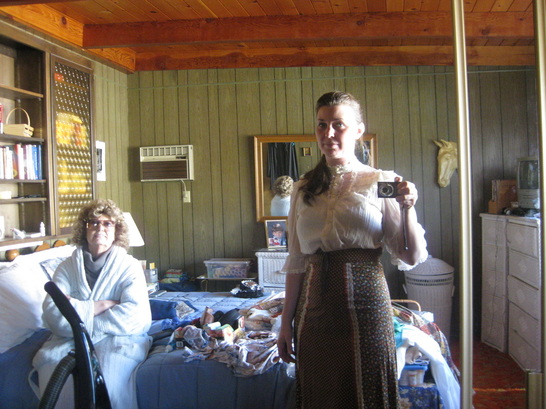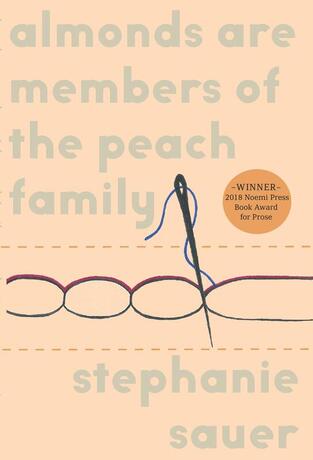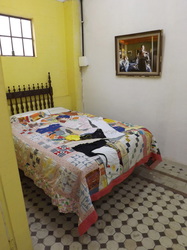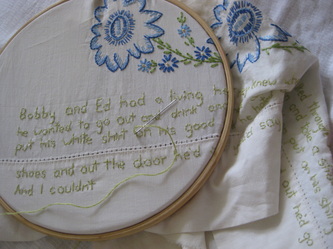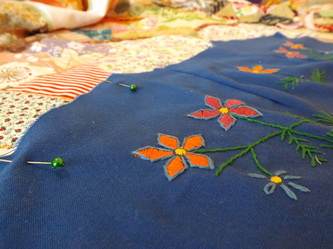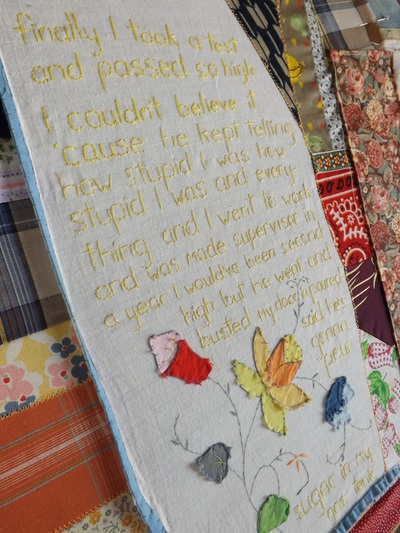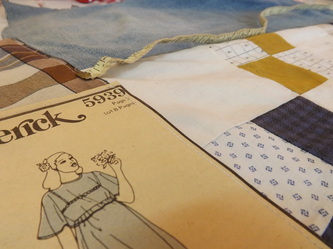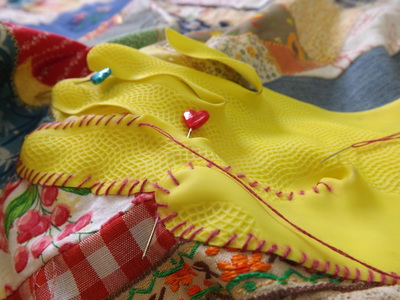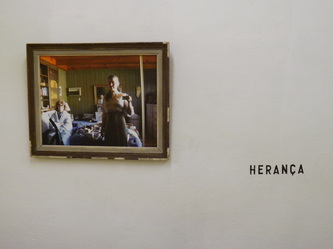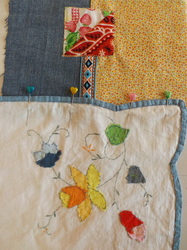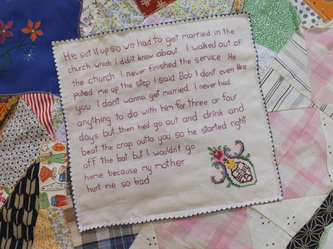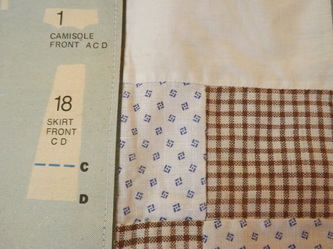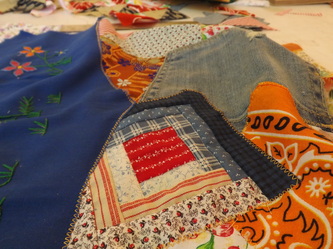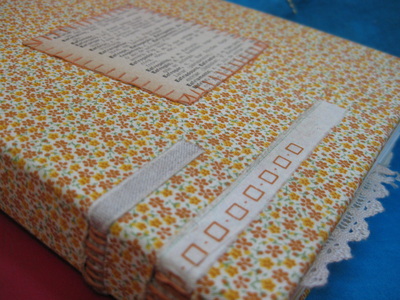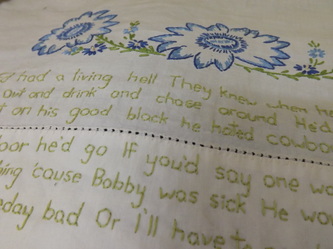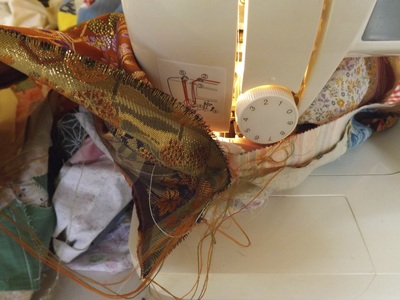WINNER OF THE NOEMI PRESS BOOK PRIZE IN PROSE
NAMED A BEST BOOK OF THE YEAR BY ENTROPY MAGAZINE AND BIG OTHER
Almonds Are Members of the Peach Family explores what happens inside a family, a culture, a body when violence goes untreated, embedding itself in flesh and collective memory.
Almonds is a book, fiber arts exhibition, and performance. Blending oral history, scientific findings, public record, memoir, photographs, song, and ephemera, it centers upon the making of an heirloom crazy quilt (a form of scrap quilting) that meditates on the effects of intergenerational trauma and the myriad ways gender violence passes from one body to another. First-hand accounts of domestic abuse, war, rural poverty, migration, alcoholism, and severe disability in four generations of one mountain-dwelling family across two continents are embroidered onto fabrics and into fractured narratives (a textual approach to scrap quilting). The quilt itself, pieced together from conventional and unconventional textiles, and the documentation of its making are an inquiry into the ways trauma is and is not assuaged by the repetitive rituals of domestic work and handicraft.
NAMED A BEST BOOK OF THE YEAR BY ENTROPY MAGAZINE AND BIG OTHER
Almonds Are Members of the Peach Family explores what happens inside a family, a culture, a body when violence goes untreated, embedding itself in flesh and collective memory.
Almonds is a book, fiber arts exhibition, and performance. Blending oral history, scientific findings, public record, memoir, photographs, song, and ephemera, it centers upon the making of an heirloom crazy quilt (a form of scrap quilting) that meditates on the effects of intergenerational trauma and the myriad ways gender violence passes from one body to another. First-hand accounts of domestic abuse, war, rural poverty, migration, alcoholism, and severe disability in four generations of one mountain-dwelling family across two continents are embroidered onto fabrics and into fractured narratives (a textual approach to scrap quilting). The quilt itself, pieced together from conventional and unconventional textiles, and the documentation of its making are an inquiry into the ways trauma is and is not assuaged by the repetitive rituals of domestic work and handicraft.
|
"Stephanie Sauer’s Almonds Are Members of the Peach Family, is an immaculate meditation in prose, masterfully and poetically aligned. Examining cases from domestic abuse, to national (in)security, to cultural and familial traditions and stigmas, Sauer’s triangulation of histories, theories, and experience revalorizes the overlooked revolutions charged by women in both public and private spaces. Her cadence and distillation of evolution is measured out and noted by the pricking of time as fabric, the ache of the hands and heart at work, the sonorous hum of thread pulled when one thing is stitched to another: this body, that body. This is a time capsule, a manifesto—at once unraveling and embodying the weight and force of a woman at work."
Laurie Ann Guerrero |
"Imagine air composed of salt and the opposite of salt: someone who can no longer excrete, weep, kiss, or vomit. Who is dead? “The air is composed of saline and the once living,” writes Stephanie Sauer, writing the brink-verge of an impossible city, a city (Rio) that “has no regard for survival.” Entering the work through this magnetizing and umcompromising “day,” the book’s morning or start, the reader is soon breathing night: Judith Herman’s concept of trauma, of what it will take to recover ideals of family or psychological life in the time that follows an atrocity; the “bruised little girl flesh,” and the encroaching violence of an authoratarian regime. Almonds Are Members of the Peach Family is adept at turning this narrative over to show us the “back-stitch,” the parts of living like this (with others) that we rarely get to see. I was very touched by Sauer’s precision and sweetness as she decocts the lineage story of the grandmother, in particular. The weight and sorrow of elegy are performed in a non-dominant verse that has enough space in it for other worlds, other languages and new sounds. Because: “I am unable to fill in the ligaments. I am working with bones and a superficial filling would be untrue.” There’s information, here, about what it would take to discharge something long held or contained in somatic memory. Tell the truth about what happened to the body, this book seems to say. Tell the truth about the time in which the body got to be a body, and make it real. All of this feels like brave and vital work for a poet to be attending to. Stephanie Sauer has written an important book."
Bhanu Kapil |
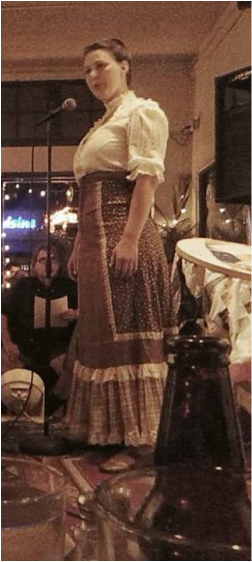
This project was made possible with support from the Kimmel Harding Nelson Center for the Arts, Yaddo, and the Barbara Deming Memorial Fund. Excerpts were first performed at Luna's Poetry Unplugged in Sacramento, California, with special thanks to Frank Andrick and Art Luna.
